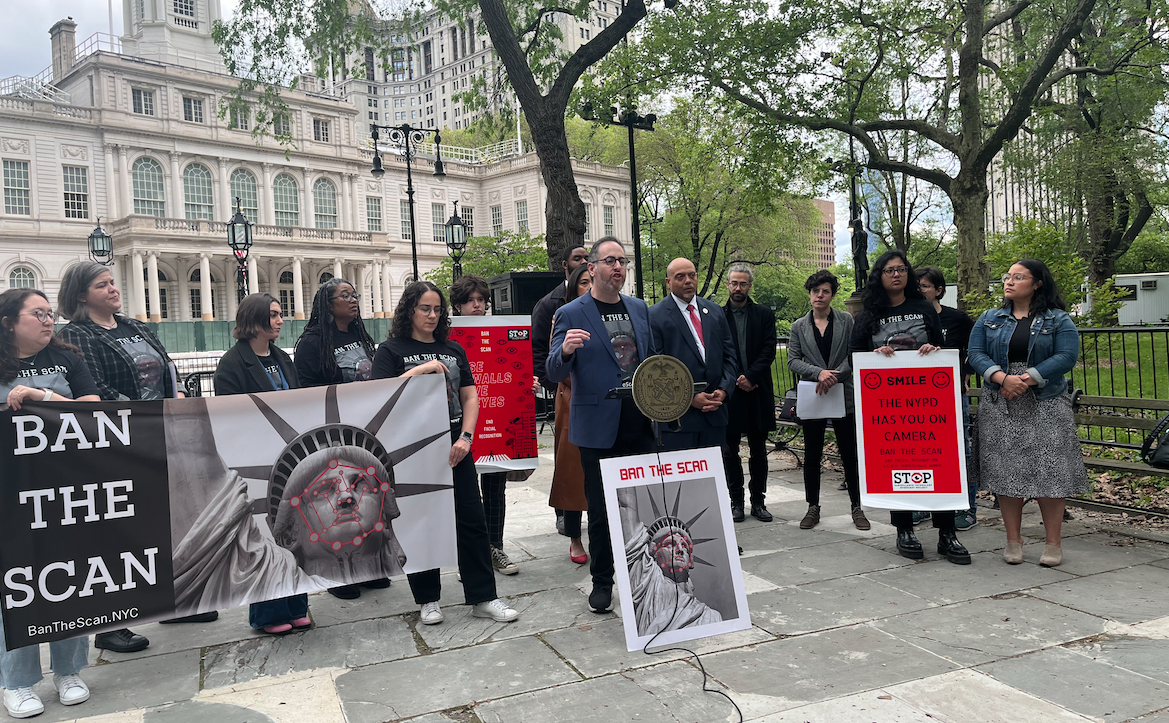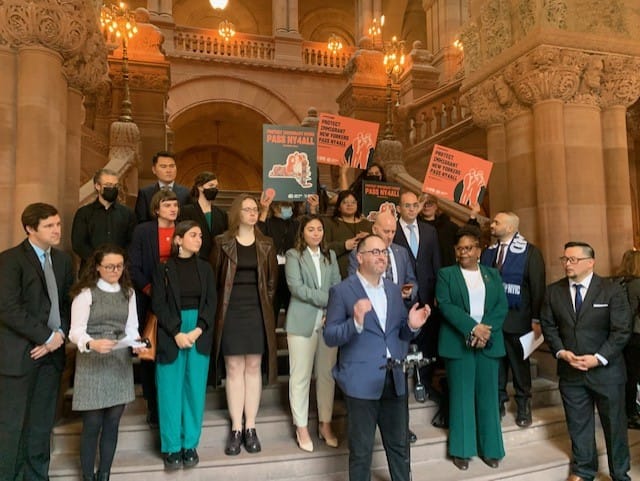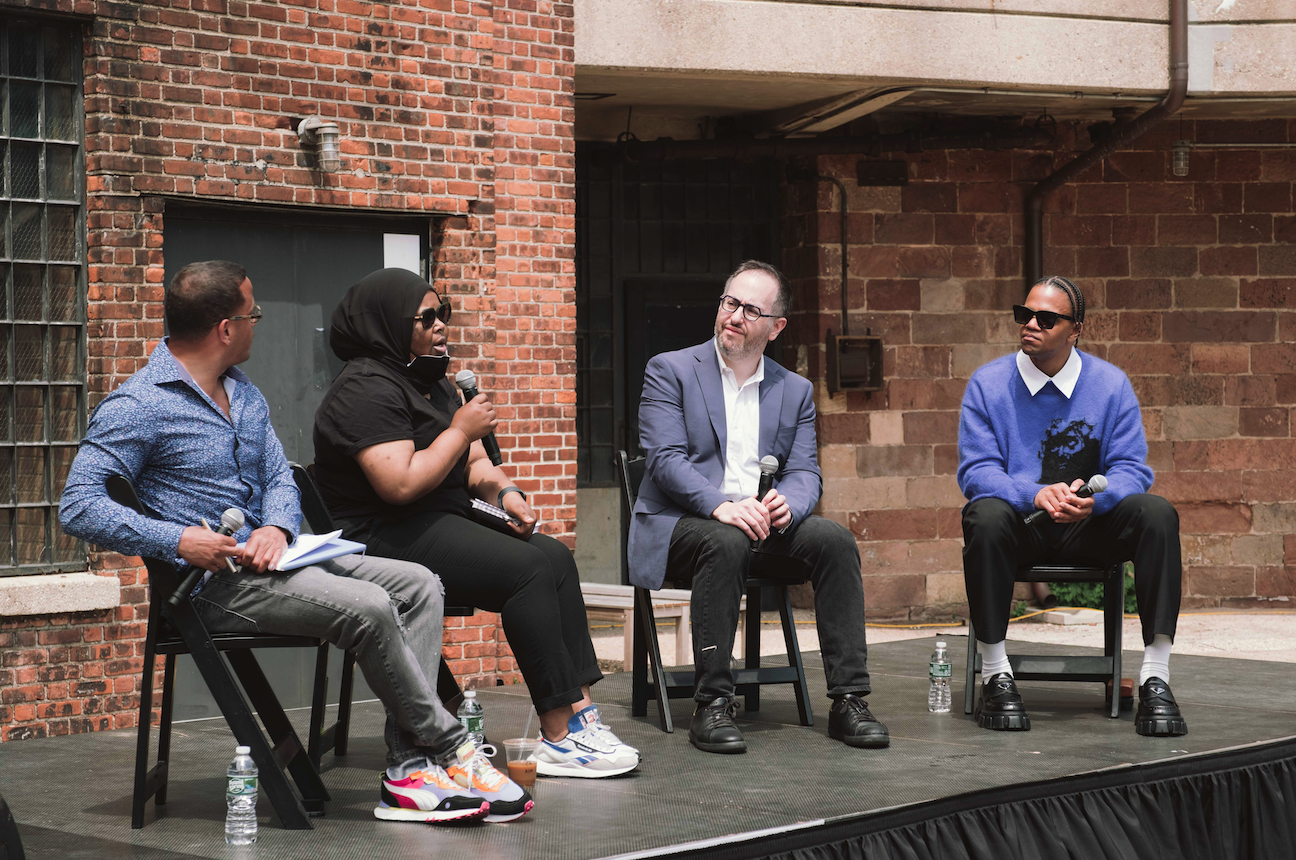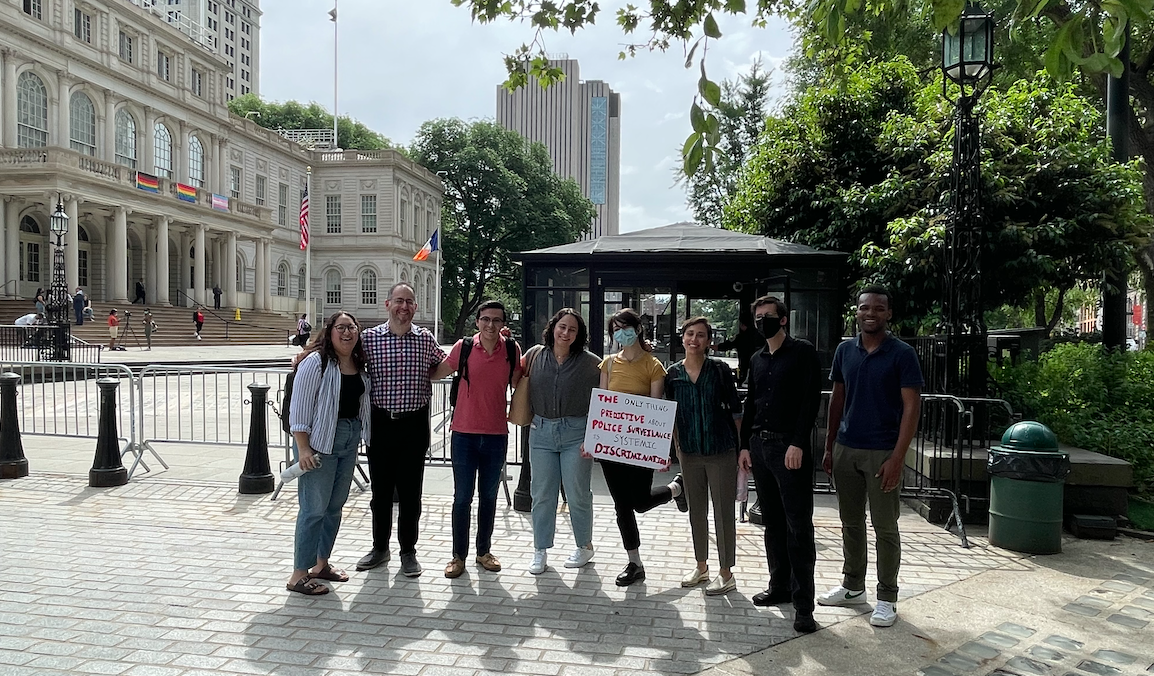S.T.O.P. and the Fight Against Surveillance
"Surveillance is a uniquely opaque form of state violence, able to upend our lives without ever being seen or understood."

In a world increasingly surveilled, the story of the Surveillance Technology Oversight Project (S.T.O.P.) stands out as a critical example of defiance against the encroachment of privacy and civil liberties. S.T.O.P. litigates and advocates for privacy, working to abolish local governments' systems of mass surveillance.
This deep dive with its founder and Executive Director, Albert Fox Cahn, takes us on the journey that led to the creation of S.T.O.P. and its impact since its launch. Explore the driving forces behind Albert's advocacy for privacy rights and the critical choices that steered the direction of the organization.
Walk us through why you felt compelled to create S.T.O.P.
As a kid, I had two hobbies: building computers and protesting NYPD. And those twin, nerdy passions of technology and social justice have stayed with me in the decades since, driving me to seek out a career in public interest law and eventually founding S.T.O.P. After 9/11, my activism turned towards interfaith work, as I witnessed the sweeps – dozens, and then hundreds of Muslim and immigrant men disappearing, taken in immigration raids without warning. That Muslim-Jewish solidarity work became a recurring theme as well.
After graduating law school and briefly trying corporate practice, I knew I needed that activism to still be a part of my life. And when I saw Donald Trump nominated for President, I jumped at the chance to join a Muslim civil rights organization, becoming its only lawyer and only full-time staff member at the time. Representing clients wrongly labeled as “security threats,” I saw how the surveillance powers I once feared on the federal level had become an everyday reality in local policing. Facial recognition, social media monitoring, and other emerging technologies became a digitized stop-and-frisk, with unseen surveillance systems watching all of us, deciding who amongst us is a “threat.”
Surveillance poses an existential threat to us, our neighbors, and democracy itself, but I saw how local police surveillance was often ignored. That’s why I founded S.T.O.P. out of my Brooklyn living room. With no funding and zero staff, I sketched out a logo, built out a website, and started building up an organization committed to preventing police from weaponizing modern technologies to undermine age old rights. Today, our growing staff of lawyers, activists, educators, and researchers are challenging surveillance abuses across New York and around the world.

What are the biggest challenges you face in advocating against systems of mass surveillance, and how do you address them?
Surveillance is a uniquely opaque form of state violence, able to upend our lives without ever being seen or understood. When the police raid your home, you’re all-too-painfully aware, but when they seize your data, you sometimes never know. And we never see the countless tools tracking us, judging us, and making life altering choices about us on the back end of policing, immigration, and other government agencies.
In New York City, The NYPD is notoriously opaque about the surveillance technologies at their disposal, hiding both the level of surveillance they conduct and just how deeply discriminatory their tactics are. One of S.T.O.P.’s earliest successes was the passage of the Public Oversight of Surveillance Technology (POST) Act, which requires the NYPD to disclose information about their purchases and use of surveillance technology to the public. The POST Act enabled us and Legal Aid Society to uncover nearly $3 billion in formerly hidden NYPD surveillance contracts. Despite this landmark win, the NYPD regularly violates the POST Act by refusing to comply with requests for information related to its use of surveillance technology. Still, with litigation and legislation, we continue to put pressure for more transparency on the NYPD so we can accurately address surveillance abuses.
We routinely sue the NYPD to access public records, compelling them to reveal long-hidden details of their surveillance systems. Our research papers democratize the surveillance debate by putting these details in the hands of those most impacted by police tracking. And we partner with the media to dismantle the surveillance narratives so often pushed by police and politicians.

In your Wired piece, "Facebook's Message Encryption Was Built to Fail" you talk about the importance of end-to-end encryption. There have been organizations and agencies calling Meta's move towards E2EE on Messenger reckless and a blow to child protection in particular because they can no longer detect material being shared in private messages. How do you address these criticisms?
Sadly, police and politicians are all-too-willing to wield the most heartbreaking horror stories they can find to justify their decades-long attack on encryption. But the truth is that it’s just a pretext. The reality is that the internet is flooded with CSAM. In 2022 alone there were 32 million CSAM reports to the Center on Missing and Exploited Children, and those are just the images that are reported. You can have every police officer in America spend every moment of every day investigating the images that are already reported, and it still wouldn’t make a dent. But for every one image that’s reported, there are likely thousands that are not. Breaking encryption can flood police with even more reports that go uninvestigated, even more cases that are never taken up. We’re sold the myth that even more surveillance is the solution, but we ignore how that deluge of data is already too much to actually help anyone.
But while the benefits of breaking encryption are imaginary, the costs are all-too real. The truth is that without real encryption protections, the internet as we know it is impossible. And if encryption backdoors are included in messaging platforms, it will be an imminent threat to civil rights and democracy itself. The exact same encryption that is criticized for enabling crimes is also relied upon by dissidents around the globe. The amazing activists sneaking footage out of Uyghur detention facilities in China and those fighting for reproductive justice in the U.S. use the exact same encryption as criminals. And in a world where you outlaw digital locks, it won’t just be governments that break in. Companies, hackers, and everyone else in search of our data will harvest our communications for our most intimate secrets, replacing the safety of encryption with the paranoia of a world where every keystroke is logged.
Despite the increasing implementation of end-to-end encryption across more apps and platforms, why do concerns remain, especially in the context of metadata collection and storage?
Sometimes, the most dangerous information to leak out isn’t the content of a conversation, but the very fact it happened. Who you communicate with, when, and all of the other contextual data amassed about us on tech platforms can pose a potent threat, especially to the activists I support. Just as importantly, when tech companies retain the encryption keys for your messages, that encryption is meaningless as a protection from the police. I always tell people: if a company can help you when you forget your password, they can also help the cops. Those of us who focus on government surveillance and the threat it poses to civil society have to go much further, not just turning to end-to-end encryption, but complete security for conversational metadata and full ownership of our keys. Anything less is often just a fig leaf.

How can people get involved with and support S.T.O.P.?
First, they can follow our constant stream of articles, op-eds, research reports, and community toolkits here, and you can get the most important highlights through our newsletter. Ultimately, none of this work would be possible without community support, and whether it’s telling your friends about our work, or supporting it directly through a tax-deductible donation, every bit helps. We’re taking on some of the largest institutions on the planet, and we can’t do it without the help of those who share our belief in privacy and democracy. If you’re able to contribute financially, every donation, no matter the size, directly translates to work on the group, and you can contribute (including crypto and securities) here.

Allies Against Surveillance Overreach
As we reflect on the conversation with Albert and the broader implications of S.T.O.P.'s mission, it becomes clear that supporting such organizations is not just a gesture of solidarity but a necessary investment in the future of privacy and security. XMTP Labs remains committed to these principles, recognizing the indispensable role of organizations like S.T.O.P. in shaping a world where technology and surveillance are wielded responsibly, with the utmost respect for the rights and dignity of all individuals. We are grateful for the pioneering work of S.T.O.P. and fellow advocates in pushing back against the normalization of surveillance. In light of the significant hurdles that lie ahead, the need for S.T.O.P.'s vital mission has never been more pressing. Please consider supporting this critical work and mission!
XMTP Newsletter
Join the newsletter to receive the latest updates in your inbox.
